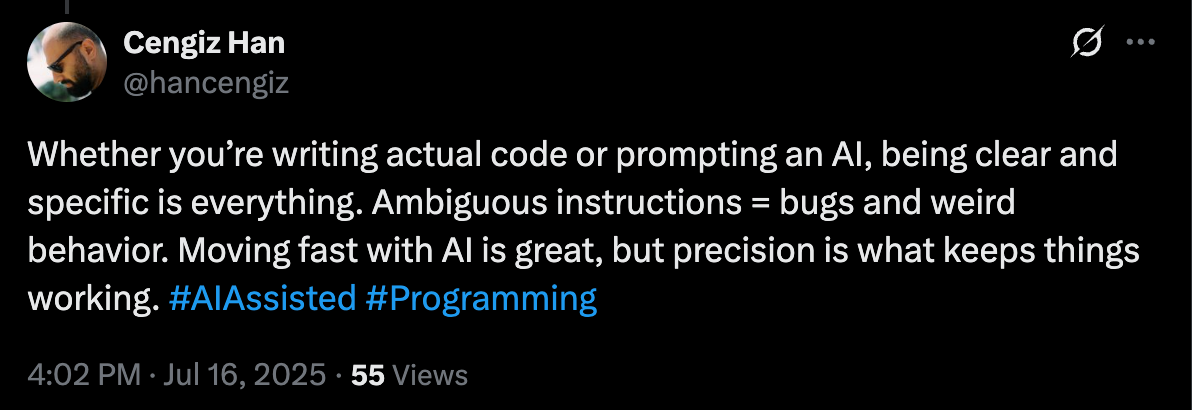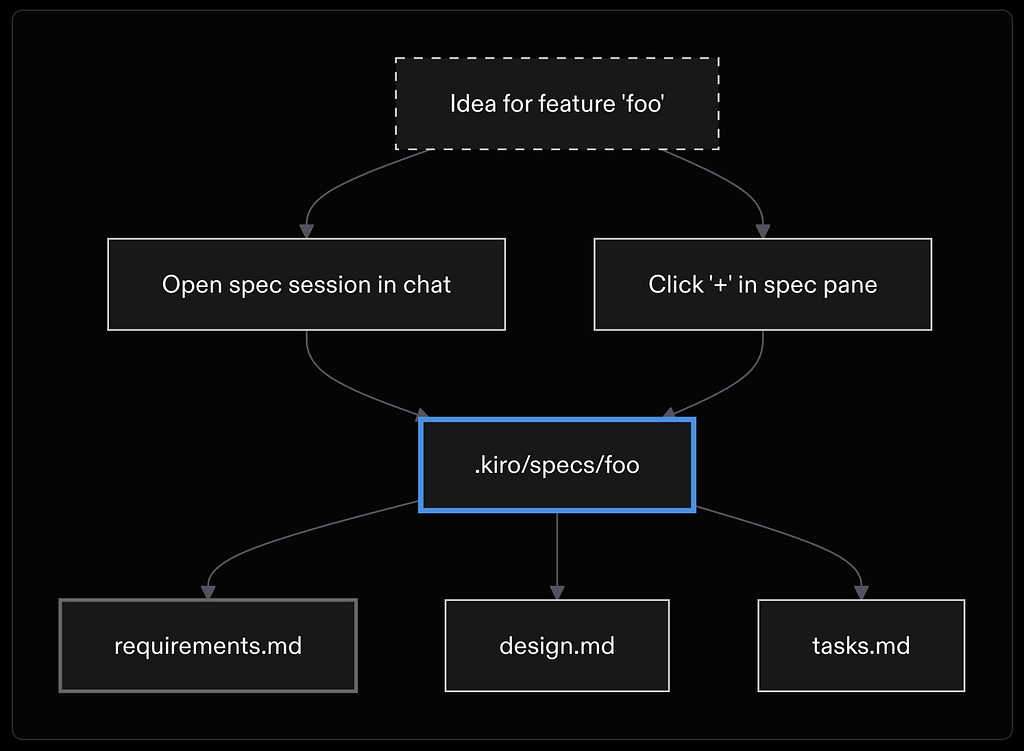Beyond Vibe-Coding: Spec-Driven Development
Vibe-coding is fun. You throw an idea at the AI, see what it spits out, tweak it, and repeat. For side projects, that’s fine.
Vibe-coding is fun. You throw an idea at the AI, see what it spits out, tweak it, and repeat. For side projects, that’s fine.
But for production systems? Real products? Enterprises don’t ship on vibes.
We’re Coding in English Now. So What?
We’re heading into a world where English is the new interface. I’ve never had to write a line of assembly code. Most devs today never see bytecode. Pretty soon, many won’t touch a traditional language either.
That doesn’t make precision any less critical. It simply means it needs to be specified earlier in the specs.
You’re not writing for the compiler anymore. You’re crafting a prompt for the AI. If your prompt is unclear, the result will not only be buggy but also incorrect in ways you'll only realize too late.
Like I said in a recent tweet:
That’s the whole point. The interface might change, but the need for clarity doesn’t.
Spec-Driven Development: Less Magic, More Alignment
Instead of jumping straight into prompts or code, I start with a spec. Simple as that.
What should the system do?
What’s out of scope?
What happens when something breaks?
What are the business rules?
This doesn’t mean writing 30 pages of documentation before every sprint. A good spec might be a short markdown file. But it’s clear. It’s testable. It provides the AI (or another developer) with something to align to.
And when that spec becomes the source of truth, everything flows better: code, tests, documentation, and even conversations.
Amazon Kiro Is a Glimpse of What’s Coming
You can already see the direction this is heading. Amazon recently launched Kiro, an AI agent designed to assist in creating workflows and infrastructure But it doesn’t just ask you to describe your app. It starts with a structured spec.
Why? Because specs reduce ambiguity. They make the AI’s job easier. And they make your code more predictable. That design choice says a lot.
This spec-first mindset isn’t a trend. It’s a design pattern for tools that want to build things that actually work.
AI Makes Things Faster. Specs Make Them Safer.
Yes, AI can speed things up. No doubt about that. But speed without structure is a mess waiting to happen. It’s seen it play out in teams that moved fast, skipped the alignment, and spent months cleaning up avoidable bugs.
Specs don’t slow you down. They stop you from crashing later.
Having your system ready before starting to write code or prompts helps everyone work more efficiently and reduces unexpected issues.
TL;DR
Coding in English is here, but clarity still matters.
Prompting without structure leads to drift, bugs, and fragile systems.
Spec-first thinking ensures everything remains aligned, whether your team consists of humans or AI.
Tools like Kiro show where things are headed: structured input, reliable output.
Vibes are fun. Specs are how you ship.
Write the spec. Let the tools do the rest. That’s how production gets done.



